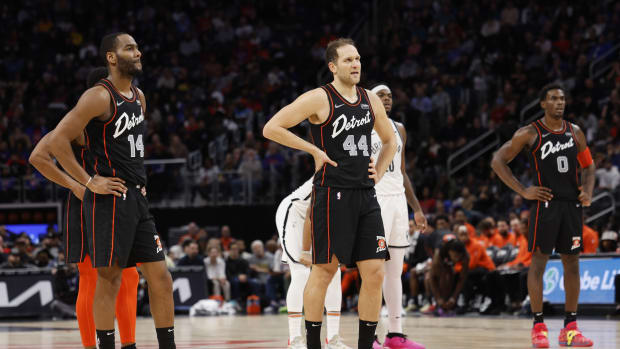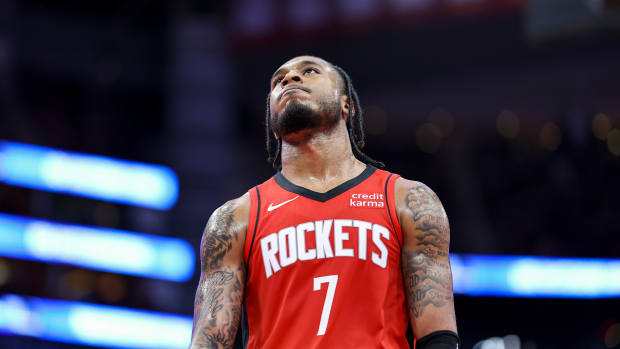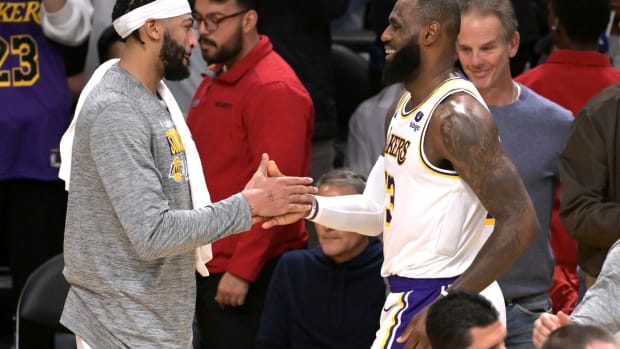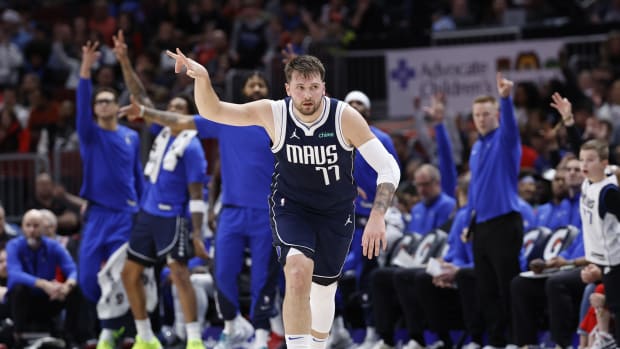The Suns Need a Better Owner—Not a Better Arena
Phoenix loves the Suns but can’t stand Robert Sarver, and this is a problem because Sarver owns the Suns. Perhaps owns is the wrong verb. Sarver’s control of the Suns, like any lousy owner’s control of his team, is like a legal kidnapping. A new arena (or expensive upgrades) is usually the ransom.
The Phoenix City Council is considering $230 million in renovations to the building called Talking Stick Resort Arena, and the Arizona Republic reported this week that Sarver has privately threatened to move the team to Seattle or Las Vegas if he doesn’t get his money. It is unclear whether Sarver is threatening Phoenix or Seattle and Las Vegas. He has turned the Suns from one of the league’s premier franchises into arguably its worst.
Sarver publicly denied any interest in moving the Suns, and who knows? Maybe he even he means it. Or maybe he is, like many owners, insisting he wants to stay put so he can say “I had no choice” later. But there is something absurd about asking Arizonans to spend $230 million to renovate a building that they won’t spend $10 to enter. Tickets for Saturday’s Timberwolves-Suns tilt are going for $8 on Stubhub as of this writing.
Asking taxpayers to fund playpens for billionaires is generally abhorrent, and the request is usually marketed on dubious economic grounds. Yet many citizenries have stepped up to help the richest among us anyway, and some of them are even glad they did. Sarver may get his money now. He would likely get it, right or wrong, if there were any indication that he knows what he is doing.
Sarver bought the Suns from Jerry Colangelo in 2004. He quickly looked smart by doing very little: Jerry’s son Bryan remained as general manager, and quickly executed a series of moves that would later make his wife extremely proud: He traded for Steve Nash, hired Mike D’Antoni, and built a Western Conference powerhouse.
But then Colangelo left and eventually Sarver had to do something. That apart has not gone well. The Suns have not made the playoffs since 2010. Despite a league structure designed to pull the worst teams up from the bottom, the Suns, incredibly, keep getting worse. They have lost 59, 58 and 61 games in the last three years. They are now 5–24.
Sarver wants the Phoenix fans to pay for this. I would argue they pay three or four nights a week, depending on the schedule.
ROUNDTABLE: Which NBA team has the worst rebuilding situation?
If you have not followed the Suns in recent years, then a) bless you, and b) that’s OK. This year alone tells you all you need to know. In October, Sarver recently fired general manager Ryan McDonough, and while the firing was perfectly defensible (and arguably overdue), the timing was not. This summer, the Suns had the No. 1 pick in the draft (Deandre Ayton) and hired a new coach (Igor Kokoskov). What kind of owner lets his general manager make big decisions like that, then fires him before the team plays another game? That is like putting the divorce attorney on hold so you can renew your vows.
Sarver replaced McDonough with longtime NBA player James Jones, and while Jones is widely liked, this job is probably too big for him right now, if only because it is probably too big for anybody. Any Suns GM must work for Robert Sarver. A new one would also have to work with a franchise player he didn’t pick (though Ayton will probably be excellent) and a coach he didn’t hire. By keeping McDonough through the summer, Sarver hampered his next general manager before he even hired him.
As long as every game ends with a winner and a loser, the NBA will always have bad teams, and this does not necessarily mean every bad team is a bad organization. The Dallas Mavericks and Miami Heat have each won championships and had losing records at times in the last decade—and did both with the same leadership team in place. That is just the life cycle of an NBA franchise.
Bad organizations are different. They are perpetually lousy, regularly trip over their own feet, and constantly make big decisions for the wrong reasons: egos, short-term public relations fears, choosing relationships over competence. Accusing owners of meddling in their own business is silly; if you own the business, you have a right to run it the way you please. Robert Sarver can do what he wants. It’s just a shame that he expects taxpayers to fund it.


































